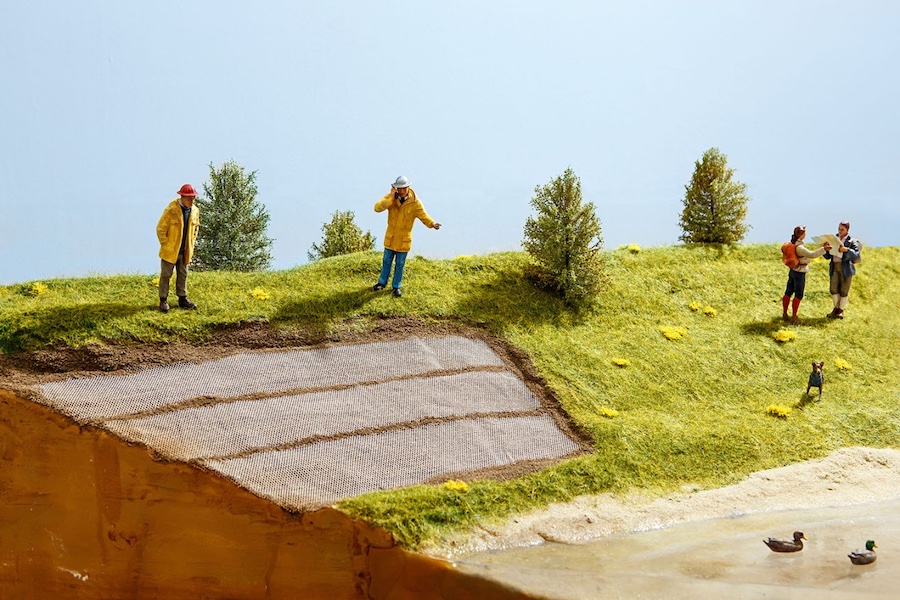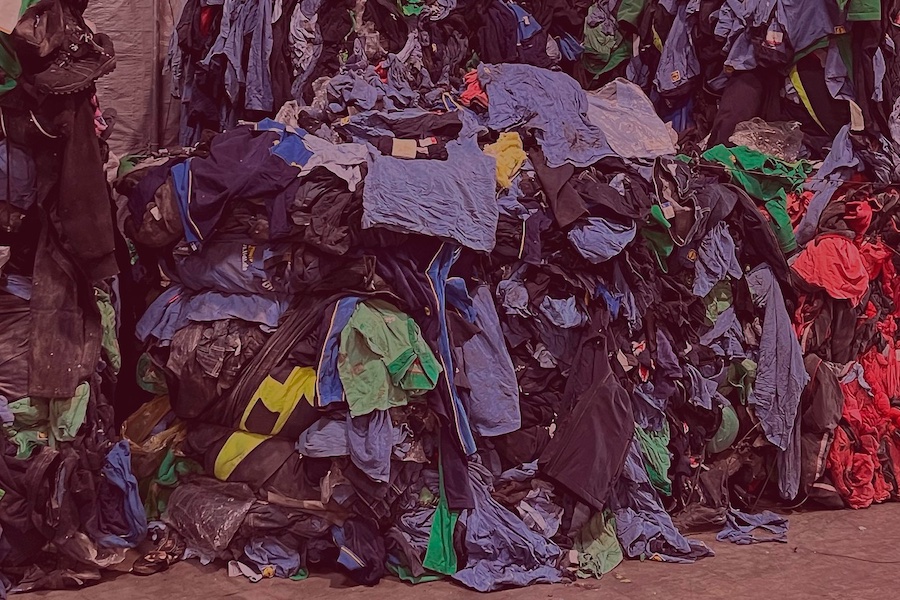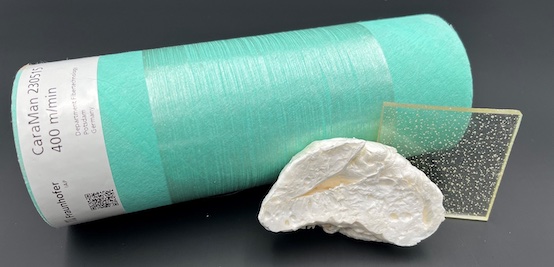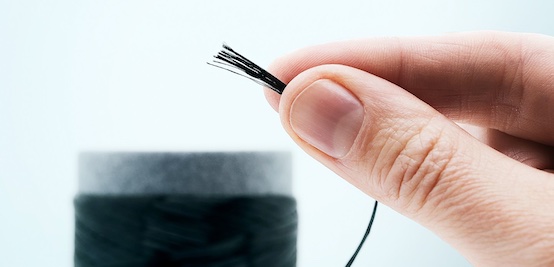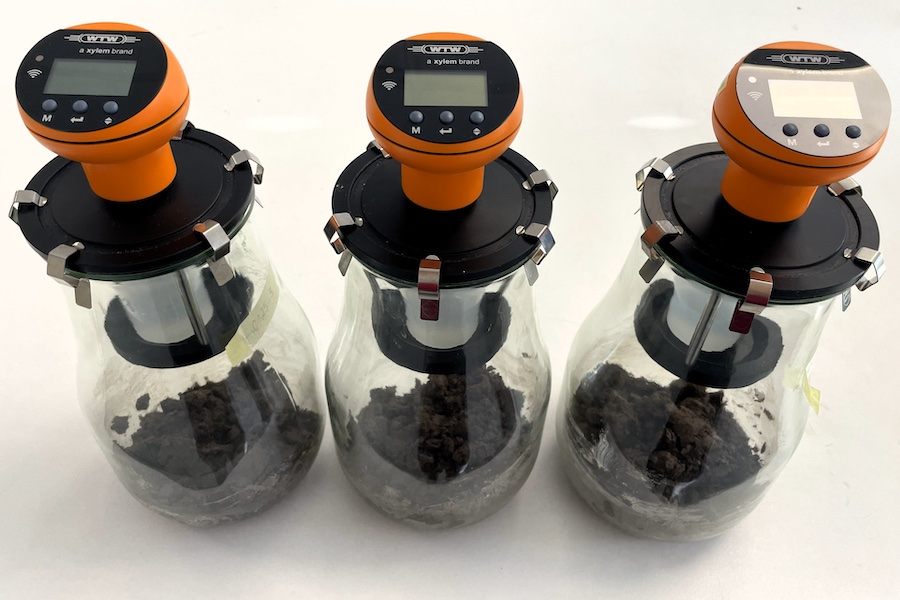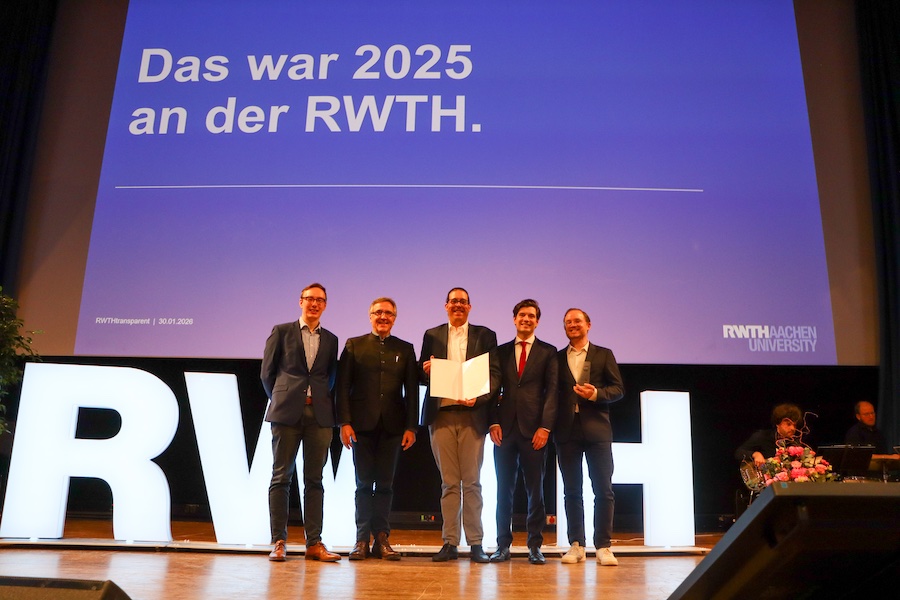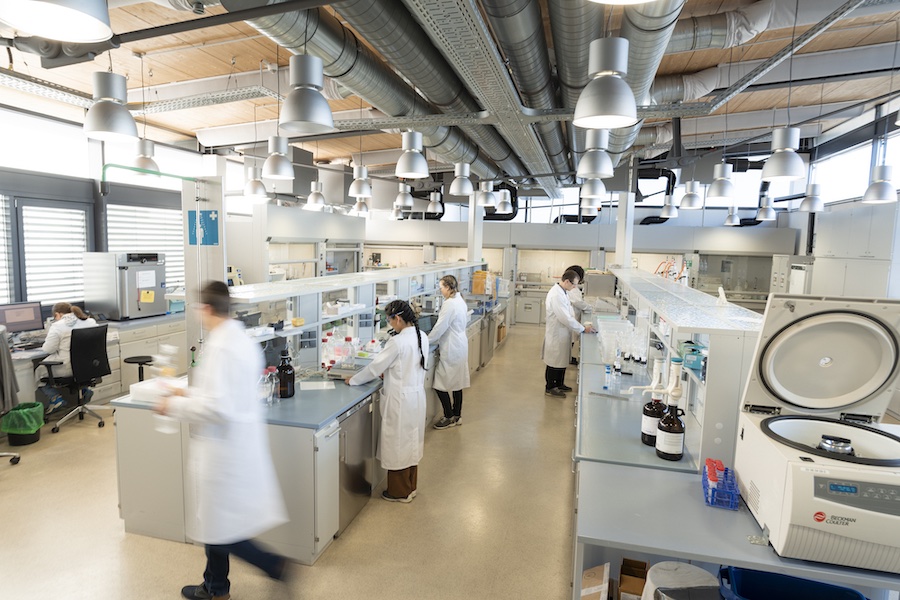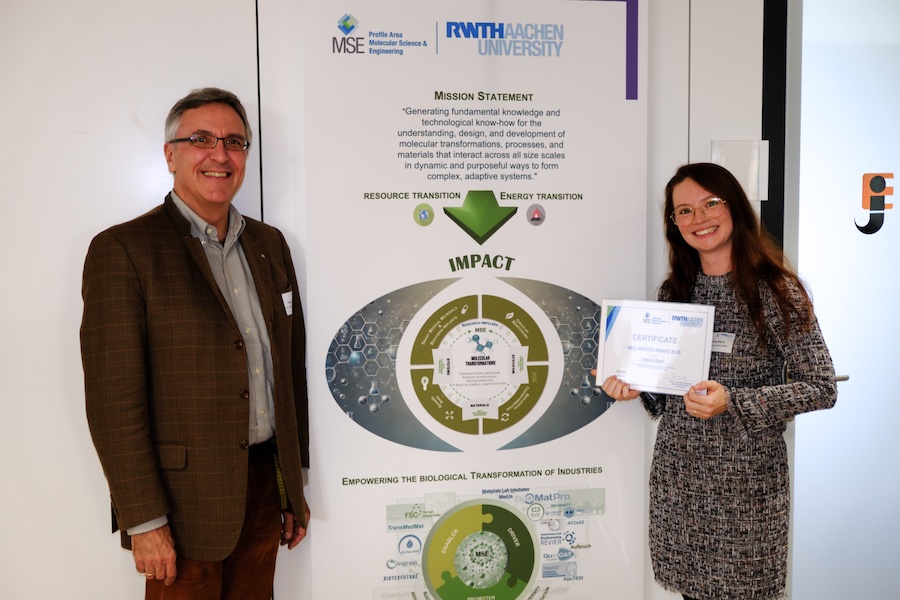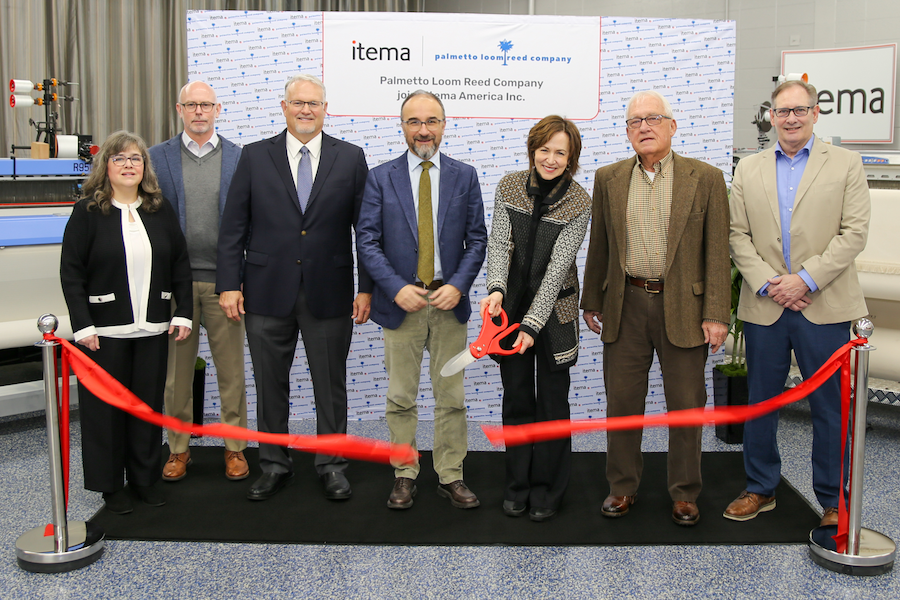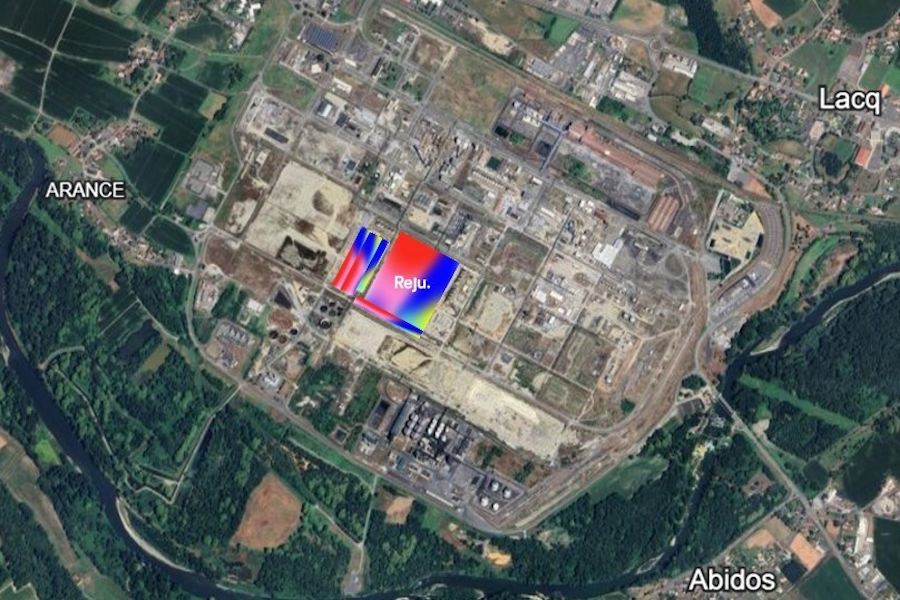#Research & Development
Feasibility study shows potential to convert textile waste into PHB bioplastic
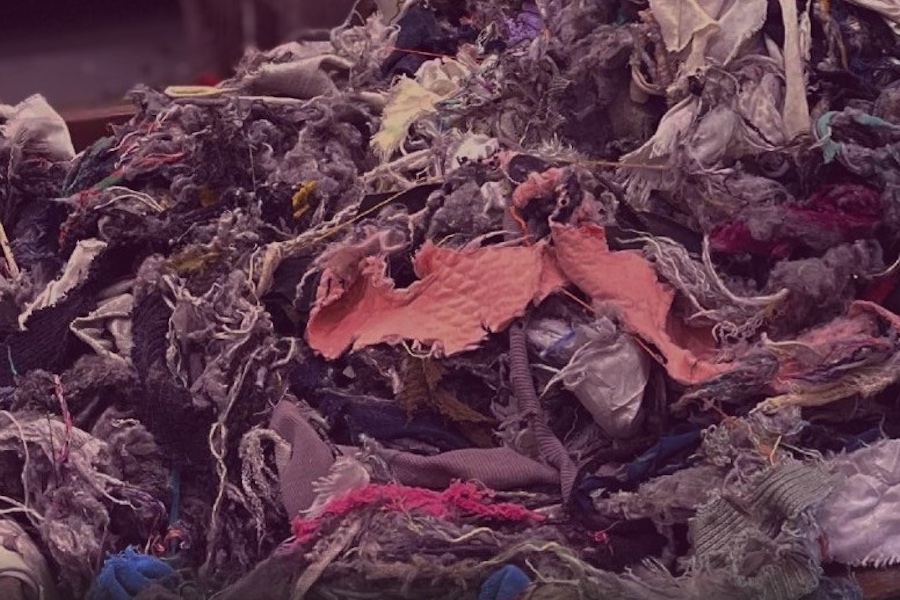
© Beneficial Design Institute GmbH
The feasibility study shows that textile waste can be converted into high-quality, biodegradable plastics.
Since Overshoot Day on July 24, 2025, humanity has used up its resource budget for this year. The textile industry contributes significantly to this: it causes around eight to ten percent of global CO₂ emissions. In the TexPHB feasibility study funded by the Ministry of Economic Affairs, Labour, Energy and Climate Protection (MWAEK), the partners show how this balance can be improved.
Feasible! From PET waste to biopolymer PHB
The approach: textiles that are difficult to recycle, such as mixed polyester-containing waste from fast fashion, workwear or industrial cleaning textiles, which are usually incinerated, are converted into the fully biodegradable bioplastic polyhydroxybutyrate (PHB). Together with textile services and textile waste companies, the Beneficial Design Institute investigated how textile waste previously destined for incineration could be recycled. The process developed by matterr GmbH for the hydrolysis of polyethylene terephthalate (PET), in which the central raw materials of PET – terephthalic acid and ethylene glycol – are recovered in their original quality, was tested for the first time for these critical material fractions. Scientists at Fraunhofer IAP used the ethylene glycol produced as a nutrient medium for wild-type bacteria, which convert it into the biopolymer polyhydroxybutyrate (PHB). At the Biopolymers Processing Centre in Schwarzheide, the PHB obtained was further processed and tested for its material properties. "We have thus demonstrated that PET waste from the textile industry can be converted into a biodegradable polymer using chemical and biotechnological processes, which could replace petroleum-based plastics in the long term," says Dr Maren Wandrey, biochemist at Fraunhofer IAP.
PHB: biodegradable and versatile
As part of the study, Beneficial Design Institute GmbH identified possible fields of application for the biopolymer. "PHB is completely biodegradable and biocompatible. Compared to other bioplastics, PHB also has a good barrier effect against oxygen and moisture. This means it offers great potential for products that are intended to degrade in the environment or in the body – for example, for medical applications, geotextile for erosion protection or agricultural products," explains Prof. Friederike von Wedel-Parlow, Managing Director of Beneficial Design Institute GmbH.
A recently published strategy paper translates the consortium's findings into concrete recommendations for policy makers in Brandenburg. It comprises a multi-stage package of measures designed to lay the foundations for a textile circular economy in Brandenburg.
Networking for regional value creation and textile transformation
Entitled "From Fabric to Bioplastic – From Waste to Value", the TexPHB market study and strategy paper will be presented on 25 November 2025 at a partnering meet-up in the State Chancellery in Potsdam. The event will take place following the 6th Brandenburg Waste Prevention Forum and will bring together stakeholders from business, research, politics and design. The aim is to initiate cooperation and investment that will drive forward the sustainable transformation of the textile and waste management industry in Brandenburg.
Prospects for Brandenburg's bioeconomy
The TexPHB project exemplifies how textile waste can be converted into high-quality, biodegradable plastics – and what opportunities this opens up for a circular economy. The results of the study will serve as a basis for further research and development work. In the long term, the aim is to create a continuous process chain – from textile waste recycling to the production of new biopolymers.
Policy Paper
Closing the Loop in the Textile Industry: Value Creation in the State of Brandenburg
Policy Paper for Stakeholders committed to a circular bioeconomy in Brandenburg
Key recommendations of the policy paper:
Promotion of start-ups and regional textile biorefineries for efficient resource use
Support programmes for research and development of new recycling technologies for old textiles
Establishment of a competence cluster for data-driven textile recycling
Support for digital data collection along the entire value chain
Qualification of companies for the upcoming Ecodesign Directive 2026
Integration of local companies into European value chains as part of the EU initiative "Regional Innovation Valleys for Circular Economy"
Download:
https://tinyurl.com/z6nnmssv



